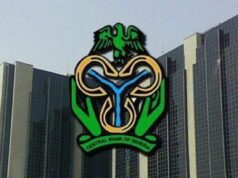SAT, JUN 20 2020-theG&BJournal- Small Businesses in Nigeria have listed the most pressing problems impacting their operations to include obtaining finance, finding customers and infrastructure deficits.
These are some of the findings revealed in PwC’s most recent report titled PwC’s MSME Survey 2020- Building to last, which is the first in a series of surveys that aim to provide insights into a range of issues concerning Micro, Small and Medium scale enterprises (MSMEs) in Nigeria.
Presenting the results of the findings, Esiri Agbeyi, Partner and Lead, Private Wealth Services, PwC Nigeria noted that Obtaining finance (22%), Finding customers (16%) and Infrastructure deficits (15%) were identified by respondents as their most pressing problems.
One remarkable finding was how payment policies imposed by big corporates severely affected 33% of MSMEs whose payments were delayed for more than a month. This negative impact on cash flows is compounded when you consider the double-digit interest rates or inflation. It does not come as a surprise then when about 50% of the SMEs surveyed did not record growths above 20% over the last 3 years.
The survey finds that 7 percent of respondents believe their business issues are really from having an unskilled workforce.
‘’Although this is a relatively low percentage, it highlights a gap that needs to be filled speedily. Digitisation and advancement in technologies mean that the future of work will rely on an upskilling journey as industry disruptions are inevitable, PwC said.
How ready is Nigeria? It may be that this is not an issue yet because most of the businesses surveyed do not compete on a global scale, with their products only addressing the needs of a rather captive market.
PwC notes that digitisation of businesses and upskilling of staff will greatly enhance the competitiveness and quality of services rendered by SMEs as well as globally and regionally position them to compete with their counterparts both within the country and in the export markets. ‘’This is particularly more pressing in the light of the AfCFTA regional trade market, expected to take off by January 2021.’’
Electricity accounts for the biggest costs to daily operations. Analysing the economic factor intensity as a result of the shortfall of low electricity supply, PwC estimates that approximately 1 out of every 7 firm exits the economy because of this.
As at 2018, 5.7million households, about 51,000 industries and over 770,000 commercial ventures were consumers of power in Nigeria (NBS data). PwC recommends that for the power sector to achieve about 6.5 times increase in annual per capita consumption by 2025, the stakeholders in the sector needed to accelerate growth in power generation capacity and improve utilization; expand the power transmission network and drive better efficiencies; and establish/scale up efficient power distribution capabilities. It also recommends that existing power must be effectively monetized through the value chain. In essence, power generated and delivered through the value chain must be recovered at full monetary value.
PwC estimates the financing gap for Nigerian MSMEs to be about N617.3 billion annually (pre-COVID-19 pandemic). Based on analysis of data from the CBN annual statistical bulletin, small businesses accounted for less than 1% of total commercial banking credit in 2018.
According to the National Bureau of Statistics (NBS), less than 5% of SMEs have been able to access adequate finance for working capital and for funding business growth/expansion. Yet, SMEs still contribute a staggering c.50% to GDP.
The objective of the study according to PwC is to capture the challenges the MSME sector faces, identify opportunities to unlock growth and investment, provide solutions, mitigate risks and assess the outlook for MSMEs across industries.
Findings covered the Nigerian business environment and market conditions, tax issues, access to finance, growth obstacles, payment policies, the role of technology and the impact of women on the MSME sector in Nigeria.
According to the National Bureau of Statistics, Small and medium scale enterprises (SMEs) in Nigeria have contributed about 48% – on average – to the national GDP in the last five years. Totaling about 17.4 million enterprises, they account for about 50% of industrial jobs and nearly 90% of activities in the manufacturing sector, in terms of number of enterprises.
In terms of ownership structure, 73% of MSMEs are sole proprietorships while 14% are private limited liability companies. The balance of 13% are Partnerships (6%), Faith based organisations (5%), Cooperatives (1%) and Others (1%).
In terms of gender, only 23% of females operate formal SME businesses in Nigeria. SME owners in Nigeria are typically between the ages of 20 to 60 years old.
Despite the significant contribution of SMEs to the Nigerian economy, challenges still persist that hinder the growth and development of the sector. Challenges encountered by the sector include lack of skilled manpower, multiplicity of taxes, high cost of doing business, among others.
Over 41.5 million MSME businesses operate in the country, according to a survey conducted by the National Bureau of Statistics and the SME Development Agency of Nigeria (SMEDAN) in 2018.
|twitter:@theGBJournal|email: info@govandbusinessjournal.com.ng|









